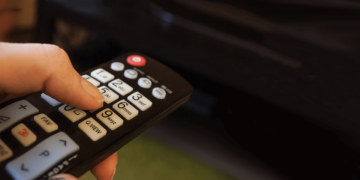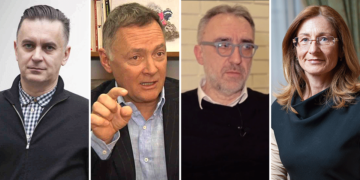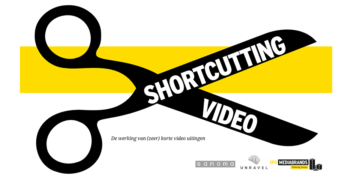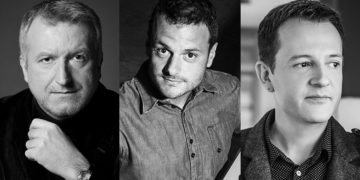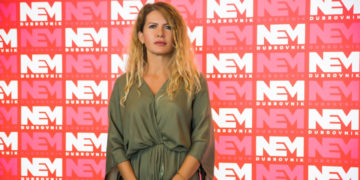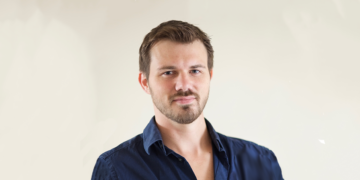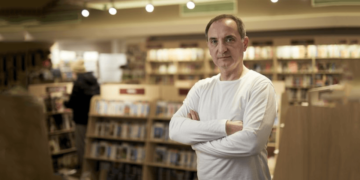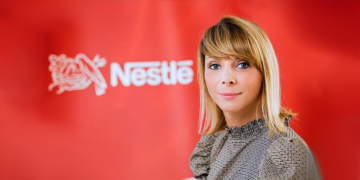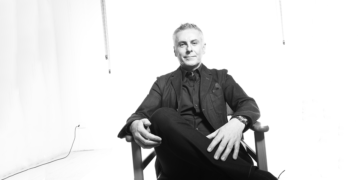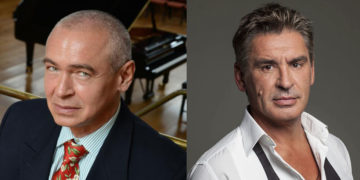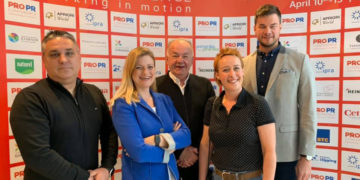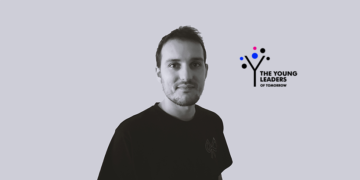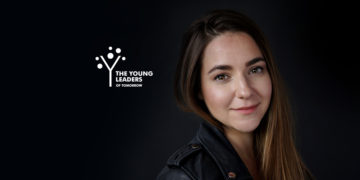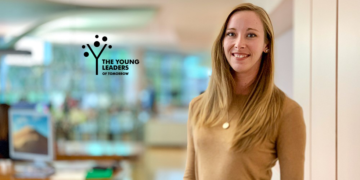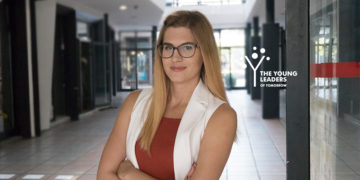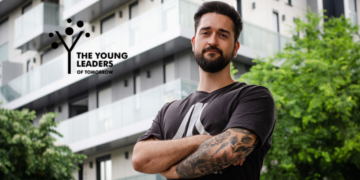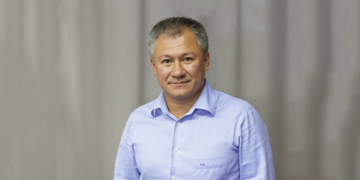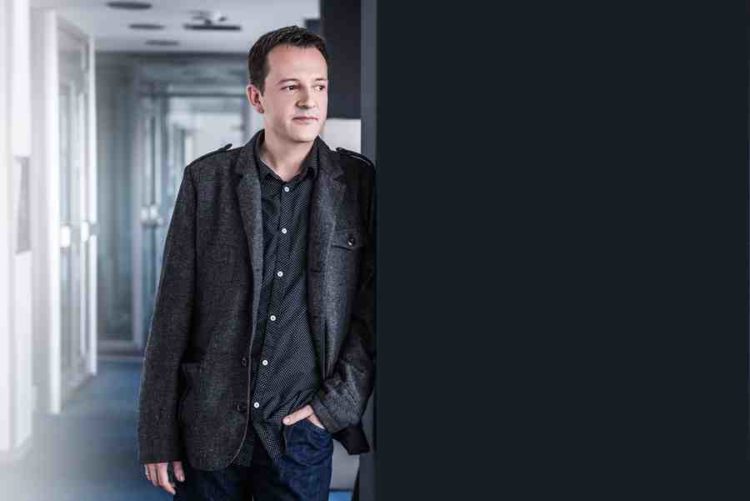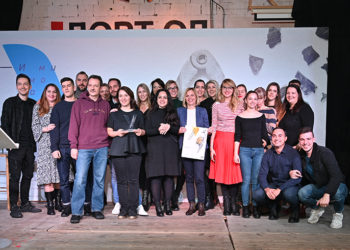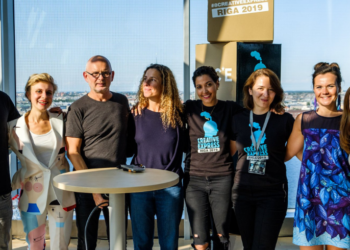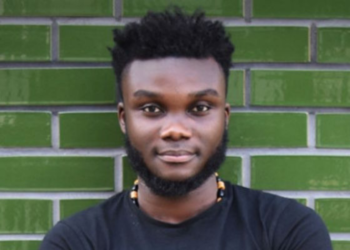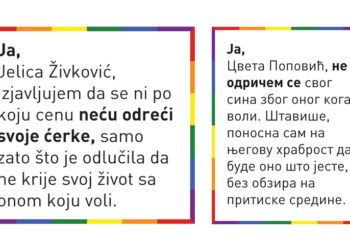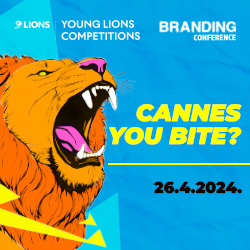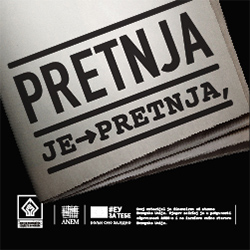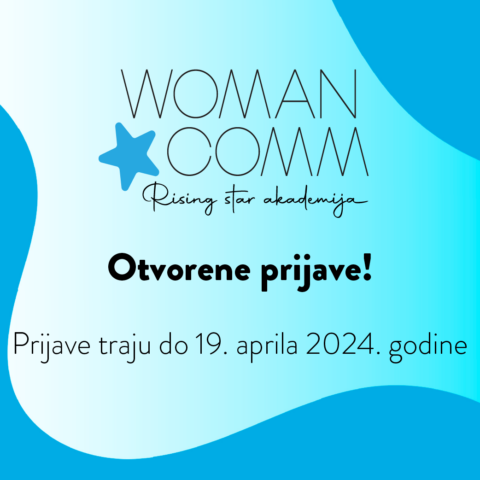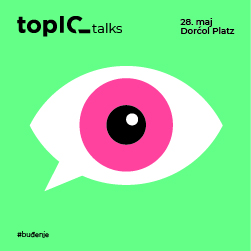Drugi jezik na kojem je dostupan ovaj članak: Bosnian
By: Vladimir Ćosić, Creative Director, McCann Beograd
A doyen of Serbian film, director of many iconic works and professor at the Faculty of Dramatic Arts, Miloš Miša Radivojević gave a series of lectures – a kind of master class – for creatives of the McCann Belgrade, including me, on the subject of film directing and visual arts in general. Professor suggested “socializing” once a week over the course of two months. According to his own words, the intention of Professor Miša Radivojević was that these lectures cover “a wide and important field” not only of film, visual fantasy and art, but also of life and the reality in which we create.
The “old school” director saw us – the agency people – as a serious “existential and evolutionary” result in the best period of our lives with “sealed” potentials that are yet to explode. For him, we are all very firmly embedded in the present, with a view to the future, where the only thing that we lack is encouragement in our effort to maintain our own course and preserve a sense of freedom.
As a result of these lectures, a specific “double-angle” interview was created on common themes – view of art, advertising and reality of two different generations – a professor and his student – a film artist and an adman – a director and a screenwriter.
Through a timeless and essential dialogue about art and reality that surrounds us, we tried together to escape for a moment from the sea of meaningless and superficial information, to start to feel and listen to ourselves.
Photo: Miloš Miša Radivojević
Miloš Miša Radivojević on VLADIMIR ĆOSIĆ
Miša Radivojević: Dear Vlado, it’s been twelve years since you received your diploma – from one of the rare reputable universities of art (Faculty of Dramatic Arts in Belgrade) in our parts – in a way an elite class of dramaturgy. You are in your prime years, and my assessment as a professor is that you are “well armed and prepared”. Is there an “area” in your position and general status that you consider to be your Achilles’ heel? Some drawback that gives you pause, which you consider you are personally responsible for? Something that gives you a slight sense of panic?
Vladimir Ćosić: If I am to be completely honest, there’s almost no area of work, or more precisely, no area of life that doesn’t give me a “slight sense of panic” as you called it, or a “chronic anxiety” as my Gestalt therapist calls this feeling of fear caused by the inherent insecurity. Even the fact that in these answers of mine I should be at least partly honest, funny and emotional, as you’ve been in your answers, gives me this feeling.
I’ll try to concentrate my response on the field of creation.
The greatest fear in me is caused by my personal library of several thousand titles. I’m afraid I’ll never have enough time to read all the books that I intend. As I grow older, I increasingly filter the literature, movies and other art which I “consume”. And because I increasingly realize this inevitability, the panic about this slowly turns into regret.
On the other hand, the pervasive insecurity in designing, creating and coming up with ideas probably will never disappear. Whenever I think of something new, I feel absolutely the same excitement, fear and panic in anticipation of the reactions of people whose opinion I value (my closest associates) or whose opinions I’m literally afraid of (my wife). Every new stripping, which inevitably follows the creative process, for me creates a new embarrassment, because I was never the kind of creator who creates exclusively for himself – to my great regret (and to the joy of my therapist).
However, I think that this kind of fear, in addition to being an essential part of the process, is also very healthy. It makes me constantly question, improve and upgrade myself. It makes me constantly dig into my own soul.
Miša Radivojević: Don’t accuse me of being unserious in my years, but we are always interested in other people’s “top ten” lists in various fields, believing it to be a kind of “projective” test for young and mature persons alike.
Try to make a list of, say, eleven authors in the history of world cinema. Eleven has a bit of football ring to it, but ten seems moronically rounded up.
Vladimir Ćosić: It seems then I was “born unserious in serious years”, because literally since elementary school I had a need for making lists, summarizing and analyzing what I’ve seen and what I’ve read. It seems to me that these lists have helped me to sharpen my own taste, to analyze art more deeply and find out more about myself.
I’m afraid that the list of my favorite filmmakers has not changed much since the period of my boyhood until now, and I don’t know whether it’s a good thing or not.
Alfred Hitchcock is probably my favorite artist of all time and one of the greatest minds among the people whose work I’ve came across in my life. Absolutely pretentiously I allow myself to think that besides the artistic things we are connected with that ever-present anxiety. I wish I was as intelligent as Hitchcock.
Samuel Fuller, a journalist, writer, soldier and philosopher trapped in the skin of an uncompromising film director. I wish I could be a film philosopher like Fuller.
Howard Hawks, one of the greatest film directors of all time, equally brilliant in directing comedies and horror movies (and everything in between), who brought directing to the perfect simplicity in order to focus his films on the characters and their stories. I would like to create characters that have a touch of “Hawksian” in them.
John Ford, the man who “invented” John Wayne, westerns, genres, film directing and film as such. I’d love to make a Serbian western.
Don Siegel, one of the greatest directors of B movies of all time. In his incredible career he has directed 50 films, of which almost all are masterpieces. He was a mentor to Clint Eastwood and Sam Peckinpah. He directed one of my favorite films of all time, the “Escape from Alcatraz”. He was considered a “European” director in America, which he once commented: “Most of my pictures, I’m sorry to say, are about nothing. Because I’m a whore. I work for money. It’s the American way.” When I grow up, I would like to be Siegel.
Sam Peckinpah, the explosive director of notorious, violent films whose action scenes are filmed as bloody ballets in slow motion, and who had spent a lifetime fighting with producers of major studios. I wish I’d met Peckinpah in person.
Billy Wilder, in addition to being one of the greatest directors of all time and one of the greatest film theoreticians, he’s a brilliant writer and extremely witty and gifted orator. I would like to spend seven days binge watching Wilder’s movies.
Jean-Pierre Melville, my favorite European director and one of the founders of the French New Wave. He brought a real revolution in the French and European cinema thanks to his love of American cinema. I would love to participate in creating a Serbian post post modern film wave.
John Huston, an eccentric rebel, macho human rights activist, director, screenwriter and actor, with an incredible legacy for future generations of filmmakers. I wish I was an eccentric.
William Friedkin, who, among other things, directed what I consider to be the most terrifying film of all time, the “Exorcist”. I would love to make a film that would terrify absolutely everyone.
Miša Radivojević: Try to make a “football team” of the history of Yugoslav cinema.
Vladimir Ćosić: I’m afraid it will be the A team in basketball, made up of different generations, with one author who has played for the US national team.
Živojin Pavlović, whose courage, subversiveness and simplicity in storytelling and depth I infinitely admire.
Slobodan Šijan, who has made movies that I would like to have wrote.
Dušan Makavejev, who made some of the best domestic engaged films, or rather philosophical works of all time. Among other things, the movie about one of my idols, Dragoljub Aleksić.
Miloš Radivojević, whom I would put on this list even if I weren’t answering his questions, because he directed my personal favorite Serbian movie of all time, “The Promising Boy”.
Petar Bogdanović or Peter Bogdanovich, one of the globally great filmmakers and film theorists. At the moment I’m not interested in the fact that he was conceived in Serbia, and that he was born and worked all his life in the United States. For me he will always be the greatest Serbian filmmaker.
Miša Radivojević: In the sense of film genres, to which one would you give primacy? Which one do you personally prefer?
Vladimir Ćosić: I’m afraid my personal preferences related to film don’t go much far from genre film in general. However, I wish that the concept of genre film weren’t identified with Hollywood mannerisms and cliches, but with clear patterns of stories and beaten paths of film and storytelling traditions in general, which date back to Aristotle.
Over time, despite numerous experiments, my taste has profiled so that I most appreciate films that range from generic matrices, but go beyond them through the personal stamp of the author, the characters they create, emotions, ideas, energy or that something mystical and inexplicable that ties us down to our seat for two hours, occasionally knocking us off our feet.
When authors are concerned, in addition to those from the history of film that I’ve already listed, I’m personally a big fan of the French “New Wave”, and authors of the “New Hollywood”.
Miša Radivojević: Make a short list of writers and screenwriters that have taken permanent residence with you?
Vladimir Ćosić: Although I’m generally unhappy with the amount of literature that still patiently waits for me, this list is probably infinitely long, so this time I will not even mention the world’s classics. Lately I enjoy the novels of James Ellroy, Cormac McCarthy and Chuck Palahniuk and graphic novels by Art Spiegelman, Alan Moore, Neil Gaiman and Garth Ennis. My favorite screenwriters have all in some point of their careers became film directors – John Milius, Walter Hill and Paul Schroeder. Each of them in turn have had strong influence on who I am today, not only in the artistic and business sense, but also in every other sense.
However, probably the biggest influence on me as a writer was made by the three writers with whom I had the most contact:
Nebojša Pajkić, my professor of film script and in my opinion the best screenwriter of all time in our country. He’s the screenwriter of some of my favorite movies and a professor who has taught me the craft basics of everything that I know about this business;
Mirko Stojković, who was an assistant to Professor Pajkić at the time of my studies, probably the greatest screenwriting talent of the younger generation, whom I consider a friend and who introduced me to the profession that I do today;
Finally, my friend from class, a colleague, a co-writer, one of my best friends and my best man, Vladimir Simić.
Miša Radivojević: Film is nearing its “estuary” – what would be the best direction for film to “spill” to? And what could be the characteristics of these new forms?
Vladimir Ćosić: I’m prone to believe your somewhat extreme statement that you recently shared in class – I think the film is nearing its death, or at least the cessation of the form that was called film for 120 years. With the advent of new technologies, traditional cinemas and traditional distribution everywhere are dying out (in Serbia they have died long ago), while virtually everyone has the opportunity to have the world’s largest Cinematheque on a hard drive at home or in their pocket. Production has also changed – no matter how much we (don’t) use these possibilities, virtually everyone on the planet is able to record, montage and serve to the public a technically satisfactory “movie”. We are so accustomed to the language of cinema, that almost all of us speak it as if it were our mother tongue. In fact, to be more precise, all of us understand it and read it perfectly, while a smaller number of people can “speak” and “write” it.
I think most filmmakers secretly dreamed that this would happen one day, but, alas, according to the old Anglo-Saxon saying, “Be careful what you wish for”, the effects of this technological acceleration and liberalization of production and distribution are diametrically opposed to what we expected: an overwhelming flood of visual and all other kinds of information happened, which failed to bring quality. Drowned in a sea of content, the audience is almost incapable of devoting deeper and longer to anything other than simple, endless scrolling. Filmmakers have become either “businessmen” chasing for money or some kind of outdated fake bohemians who create “movies” for themselves or their family members. In most cases, films are either produced by the Hollywood recipe of constant and meaningless effects, hung on the skeletons of stories that once upon a time had meaning, or are done with a non-existent budget for a non-existent audience with non-existent sense and idea.
To me, this diagnosis is definitive and final, and it should be accepted without lamenting and wailing, because each death brings forth something new – often far better.
Thus the entire point of film, like a reincarnated soul, is lately moving to some new hybrid forms (new incarnations), carried by new technologies, inventiveness of the authors or production flair.
For now, film art has very clearly moved to television through television masterpieces like “The Sopranos”, “Fargo” and “The Wire”. All of the subversion of film, together with innovative visual forms, has spilled over into graphic novels, unencumbered with production requirements and censorship committees – if you don’t believe me, read the series “Sandman”, “Mouse”, “Preacher” or “From Hell”, they have been published in our country as well.
Together with the film (and other) artists, part of the film creativity seems to have found permanent residence in video games, advertising, animation and new forms of deliberately false or partial documentarism.
All of these “spillovers” have caused the emergence of new, hybrid, surprising forms that are still in the making, and for now almost impossible to capture and define, and perhaps that’s a good thing – maybe this is the period when we need to create, rather than analyze.
If we try to fully rationally use the new technologies and forms, I’m afraid that we’ll fall into the trap of films shot in 3D technology (pure effects, devoid of deeper sense).
We need to play, explore, be personal and maximally honest. We need to strip ourselves and express intimate views, and form will impose itself in due time.
Miša Radivojević: The generation you belong to – give or take ten years, whereby I mean educated people, friends, colleagues, all those persons in whose lives you have a certain insight – could they be considered “apolitical” or “political” persons?
Vladimir Ćosić: Until recently, I thought that the vast majority of them are “apolitical”. I think the overall hopelessness and disappointment after the belief in the possibility of revolution to change the reality has led to a certain cocooning in their own microcosms.
Some sort of small flashes of political awareness and engagement have appeared on the occasion of the last elections, and as far as I can see, certain events like the one in Savamala also provoke a kind of rebellion.
However, I think it’s absolutely possible (almost “movie-like believable”) that a dramatic change can happen here seemingly “out of nowhere”, but in fact out of long-term depression, stupor and tedium. However, regardless of how things to turn out, I’m afraid that the civic, political, collective and social awareness in our country, even in young people, is at a very low level.
Miša Radivojević: To deal in art and related matters that are in a certain way “levitating”, lifted above the reality and the world that is “falling into the abyss” – do you think it’s a bit irresponsible and unethical…!?
Vladimir Ćosić: According to my personal understanding and experience of art and the world, not a bit. Moreover, I think it’s just the opposite. For me, art must have a purpose – a higher purpose and a task to whose completion it aspires, otherwise it shouldn’t exist. Therefore, for me, engagement is at the core of the definition of art, and I don’t mean the daily political banalities, but the desire to create a better world.
Since I am of the opinion that the reality and the world around us cannot be saved or changed unless you change yourself, I believe that an intimate and powerful artistic creation is one of the few successful methods to achieving these aspirations.
It’s a strange thing – I have the impression that if we want to change ourselves we have to take a running start, climbing up to the level of the collective, above the reality, or descending deep into the subconscious, in order to use that energy and fire it like a slingshot at the core of our beings.

